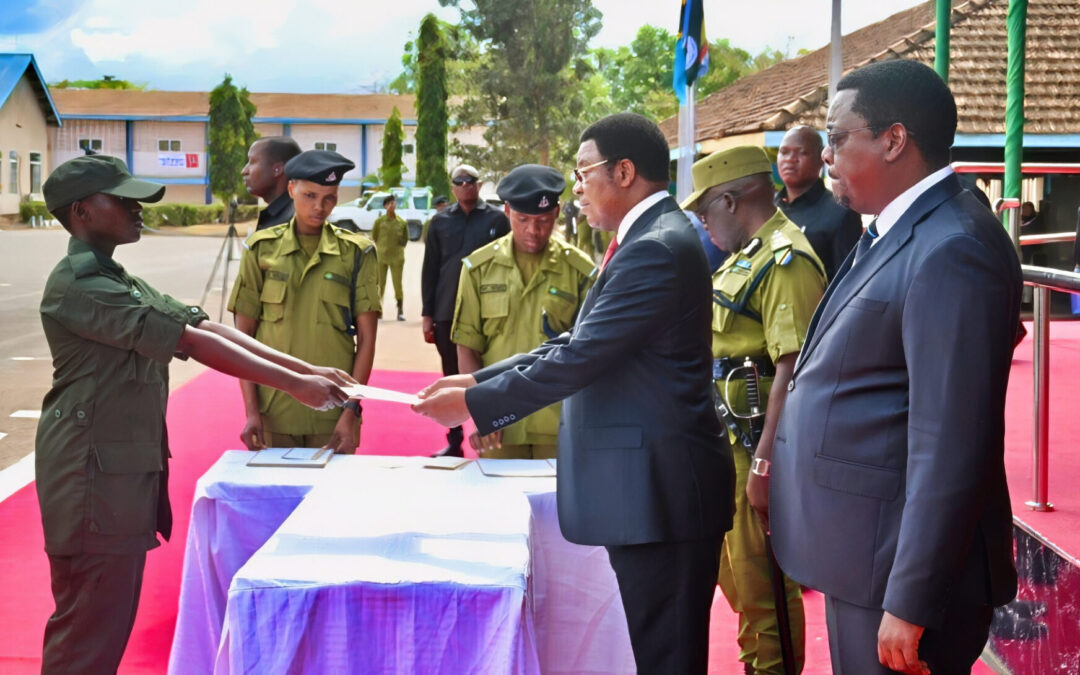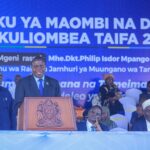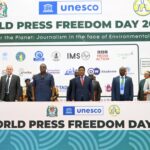Prime Minister Kassim Majaliwa Closes Preliminary Training of PCCB
In a notable advancement of the anti-corruption initiative, Prime Minister Kassim Majaliwa recently concluded the preliminary investigation training of the Prevention and Combating of Corruption Bureau (PCCB) on 26 October 2024. The event, held at the Tanzania Police School in Moshi, Kilimanjaro region, represents a pivotal moment in the country’s ongoing efforts to maintain integrity and justice.
A Call to Action: Every Tanzanian’s Duty
“Corruption is akin to a termite; it erodes the very foundations of our society,” stated Prime Minister Majaliwa, underscoring that the fight against corruption is not the sole responsibility of the PCCB. It is the collective responsibility of all Tanzanians to uphold the highest standards of moral conduct and to reject any form of corrupt practice in order to preserve national integrity and justice. This is in alignment with Article 8 (1) (b) of the Tanzanian Constitution, which identifies corruption as a threat to the nation’s aspirations of justice, equality, and sustainable development.
The Detrimental Impact of Corruption
The Prime Minister emphasised that unchecked corruption impairs the government’s capacity to achieve its core objectives, including enhancing social and economic wellbeing. He encouraged the recently trained officers to prioritise the dissemination of information to local communities, particularly in rural areas, regarding the detrimental impact of corruption. “Knowledge is power, and in this case, it’s an effective antidote to corruption,” he commented.
Strategic Focus on High-Risk Areas
Furthermore, the Prime Minister has directed the PCCB to refine their strategies and accelerate their efforts in tackling corruption, with a particular focus on high-risk areas such as revenue collection, public procurement, employment processes in the public sector, land allocation systems, and community services. It was also emphasised that funds allocated for development projects must be subject to rigorous oversight and management to ensure they fulfil their intended purposes.
A Testament to Commitment
This event is a testament to the Tanzanian government’s unwavering commitment to combating corruption and economic crimes. As Prime Minister Majaliwa observed, “The fight against corruption is not a sprint; it is a marathon that requires the collective efforts of all citizens and the diligent work of institutions like the PCCB.”
As Tanzania continues to make progress in this crucial area, the closure of the PCCB’s preliminary investigation training by Prime Minister Kassim Majaliwa represents a significant step forward in reinforcing the nation’s commitment to fostering a corruption-free society.
Empowering Citizens: The Role of Education and Awareness
One of the core strategies outlined by Prime Minister Majaliwa is the empowerment of citizens through education and awareness. By grasping the damaging effects of corruption, citizens can play an active role in combating it. The government plans to implement a comprehensive educational campaign, leveraging media and community outreach programs to reach even the most remote areas.
The Importance of Transparency and Accountability
Transparency and accountability are fundamental to the fight against corruption. In a recent statement, Prime Minister Majaliwa underscored the importance of transparent processes across all sectors, with a particular focus on public procurement and employment. By ensuring transparency in these processes, the government can significantly reduce the opportunities for corrupt practices to take root.
International Collaboration and Support
The Tanzanian government is seeking international collaboration and support to strengthen its anti-corruption strategies, recognising that corruption is a global issue. Tanzania is working with international bodies and other nations to adopt best practices and innovative approaches to enhance its anti-corruption framework.
The Role of Technology in Combating Corruption
Technological solutions are a vital component of contemporary anti-corruption strategies. The government is investing in digital tools and platforms with the objective of enhancing transparency and streamlining processes. The Tanzanian government is implementing e-governance systems with the objective of reducing human interaction in high-risk areas, thereby minimising the chances of corrupt practices.
Engaging the Private Sector
The fight against corruption is not confined to the public sector. It is also the responsibility of the private sector to play a key role in creating a corruption-free society.
The government aims to create an environment where integrity and transparency are the norm by engaging with businesses and encouraging ethical practices.
Driving Change: Tanzania’s New Wheels in the Fight Against Corruption
Prime Minister Kassim Majaliwa has donated 10 brand new vehicles to the Institute for Prevention and Combating Corruption in Tanzania (PTUKURU). The vehicles represent more than just a new fleet; they are a significant boost to the Institute’s efforts in ensuring transparency and accountability.
A Fleet of Integrity
The presentation of these 10 vehicles is part of a larger transfer of 88 vehicles that the Institute has acquired. “It’s not just about getting from point A to point B,” remarked the Prime Minister. “It’s about driving change and ensuring that corruption is left in the dust.”
The Collective Responsibility
The fight against corruption cannot be won by a single individual. While PTUKURU plays a pivotal role, it is essential that all Tanzanians contribute to this effort. As the adage goes, “It takes a village to raise a child,” and in this case, a nation free of corruption. All members of society must actively engage in upholding ethical standards and resisting unethical practices such as those that would lead one astray on a GPS.
Looking Ahead: A Unified Approach
As Tanzania progresses, it is imperative that a unified approach is adopted, encompassing the government, citizens, the private sector and the international community. By combining efforts and resources, Tanzania can continue to make significant strides in its fight against corruption, ultimately leading to a more just and equitable society.
In conclusion, the recent initiatives undertaken by Prime Minister Kassim Majaliwa serve to illustrate the Tanzanian government’s commitment to the eradication of corruption. By fostering education, transparency, technology, and collaboration, Tanzania is establishing a foundation for a brighter future, one that is free from the constraints of corruption.
Tanzania media
- Kanyala Ferry Launch: TEMESA’s New Service for 15,000 Sengerema Residents (Mwanza) - 18 August 2025
- Russia-Tanzania Naval Cooperation: How the Smolny Training Ship Boosts Dar es Salaam’s Maritime Security - 18 August 2025
- Tanzania’s ICGLR Commitment: Stabilising the DRC & Great Lakes Region - 18 August 2025
































